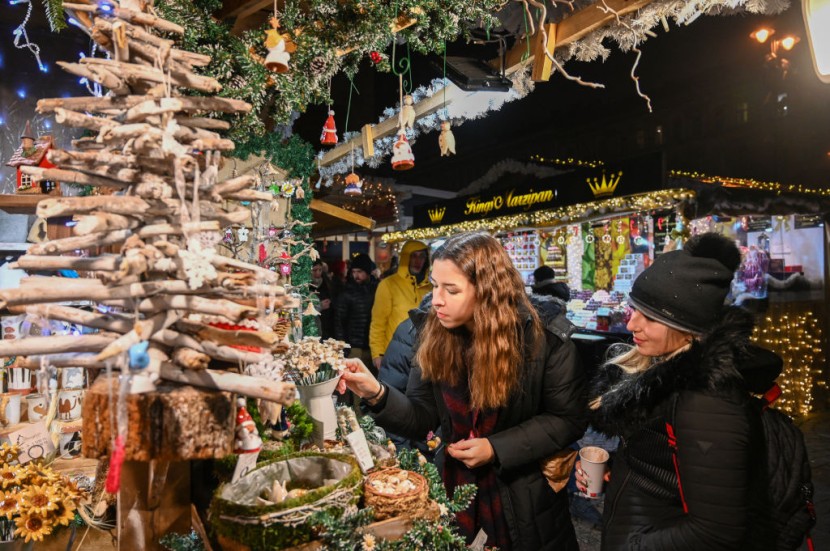As Christmas comes in a few days, people are supposed to be in good spirits as the season promotes it. However, the rising cost of festive items - from food to presents - presented a not-so-merry season this year across Europe.
The Guardian's Viktor Sunnemark and Sarah Butler wrote an article about how inflation became the Grinch that stole Christmas through several items that make up a traditional season across the continent.
Expensive Christmas Dinners
The most obvious factor affected by inflation is food. Whether poultry, fish, or meat, all proteins have been affected by inflation in the past year, only being exacerbated by the rising cost of grain for animal feeds due to the war in Ukraine, as well as fuel for transport, energy for processing, and higher labor costs.
Another factor to consider was the perennial problem of bird flu and pests affecting salmon, which have been overstretched by higher demand and the climate crisis.
In the UK, poultry prices increased by 5% from last year, contributing to a more costly dinner for many families this year.
While inflation in Ireland and France was not as bad as in the UK, it remained significant. In Germany, on the other hand, inflation might have slightly decreased from last year but it was 43% more expensive than it was in the run-up to the 2020 festive winter season.
The Nordics also experienced an effect of inflation in its Christmas meats - 10% more than this year and 34% more than in 2020. Pork prices in Denmark also rose by 12% since 2020.
For Eastern Europe, carp have been the staple of the Christmas table. However, cultivation of such became more expensive as the price of fish in Hungary and Poland rose by over 60% compared with the same period in 2020 due to increasingly expensive feed prices, increasingly dwindling Ukrainian labor, and diminished export markets as a result of Russia's invasion of Ukraine.
Vegetarians and vegans across Europe are also affected by inflation, as well as unseasonable or extreme weather across the continent exacerbated by the climate crisis.
Read Also : Sea Freight Inflation Surges Amid Red Sea Crisis; Shipping Container Rates Reach $10,000

Chocolate's Bitter Inflation Aftertaste
Christmas dinners are not complete without desserts like chocolates. But this year, chocolate production was also affected by inflation as average prices increased by up to 22% in the European Union since 2020.
Cocoa prices have reached their highest level on the commodities markets since the 1970s after a series of poor harvests this year in Ghana and Cote D'Ivoire, two of the most important cocoa-growing countries in Africa and the world, due to longer-term problems around land availability, disease, and access to fertilizer.
Increasing sugar prices also drove up the cost of chocolate production, which was also a result of poor weather and higher packaging and transport costs related to the oil price.
Prices in Hungary have soared by 56% since 2020, a reflection of wider food price inflation in the country from a mix of economic woes affecting exchange rates and local problems such as long-term energy contracts with Russia.
Meanwhile, prices of Swedish chocolates also increased by over 18% since last year.
Book Gifts Not Booked Enough
For more lasting gifts like books, Christmas has also been unkind, as the average price of a paperback in the UK was expected to reach £12 ($15.26) in 2024, the fastest pace of inflation on books in Europe.
Inflation in book publication has been affected by rising costs in paper production and transport, as well as higher printing costs in China. This meant that booksellers were expecting a shift away from more expensive hardbacks for presents this year.
Another factor that affects book sales is "BookTok," a review trend where users of the social media platform TikTok recommend and review books.
Not-So-Merry Alcohol Prices
Alcohol has also been consumed at Christmas tables and bars across Europe every winter, and yet, due to rising costs of making glasses for bottles and challenges in growing crops to make alcohol, people think twice about whether or not to drink and be merry this year.
For example, Hungarians might consider reducing alcohol consumption as the country has been suffering the worst inflation on alcohol, with prices of up to 37% since 2020. Poland also experienced a 28% increase in alcohol prices, while Italy and Sweden recorded smaller increases of about 10%.
Post-Brexit UK, on the other hand, is in the middle of the alcohol inflation rate at 16% price increases in 2020.
Pricey Engine-Powered Sleigh Rides
Finally, this year's Christmas would impact travelers as fuel costs skyrocket due to several geopolitical tensions, such as Russia and Ukraine, Israel and Hamas, and the recent Red Sea rocket raucous by the Houthis.
Again, Hungary has been heavily affected as they heavily relied on Russian oil since the Kremlin's invasion of Ukraine. On the other hand, the UK's fuel price rises have been lower, particularly because the government froze planned increases in tax, which made up a large part of prices at the pump, as well as scrutiny by the country's competition watchdog.
Related Article : 7 Tips to Protect Your Business from Phishing This Holiday Season
© 2025 HNGN, All rights reserved. Do not reproduce without permission.








